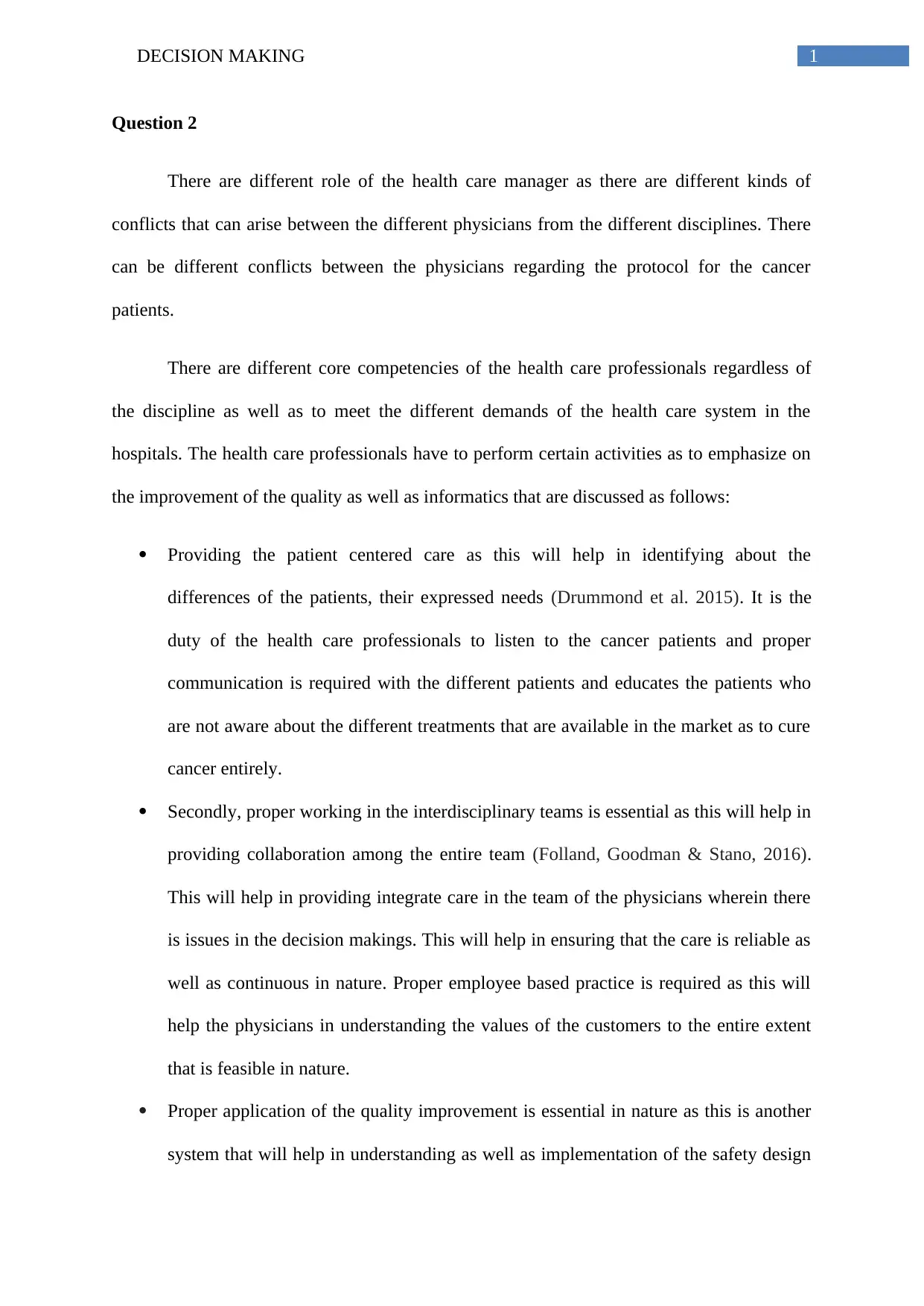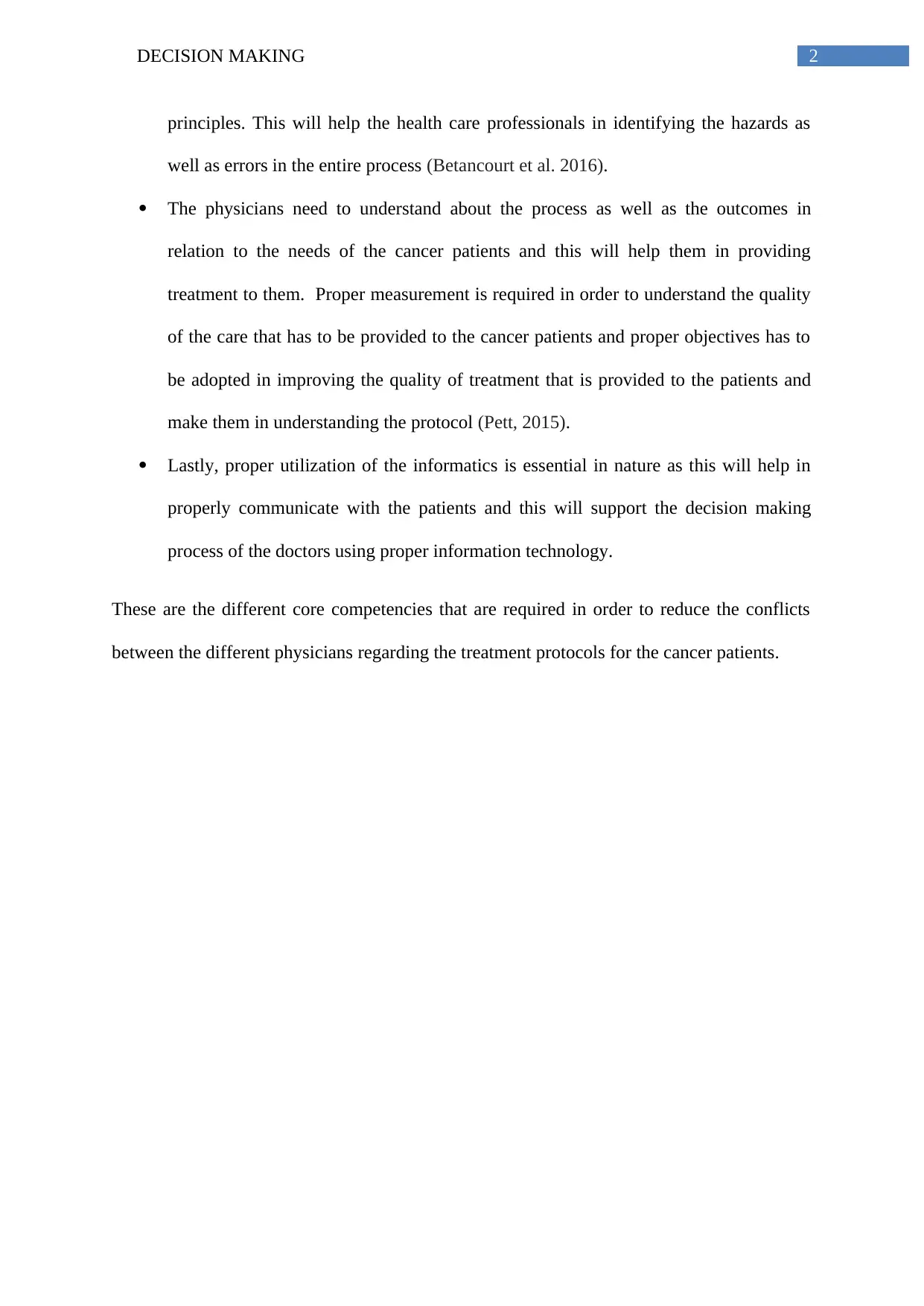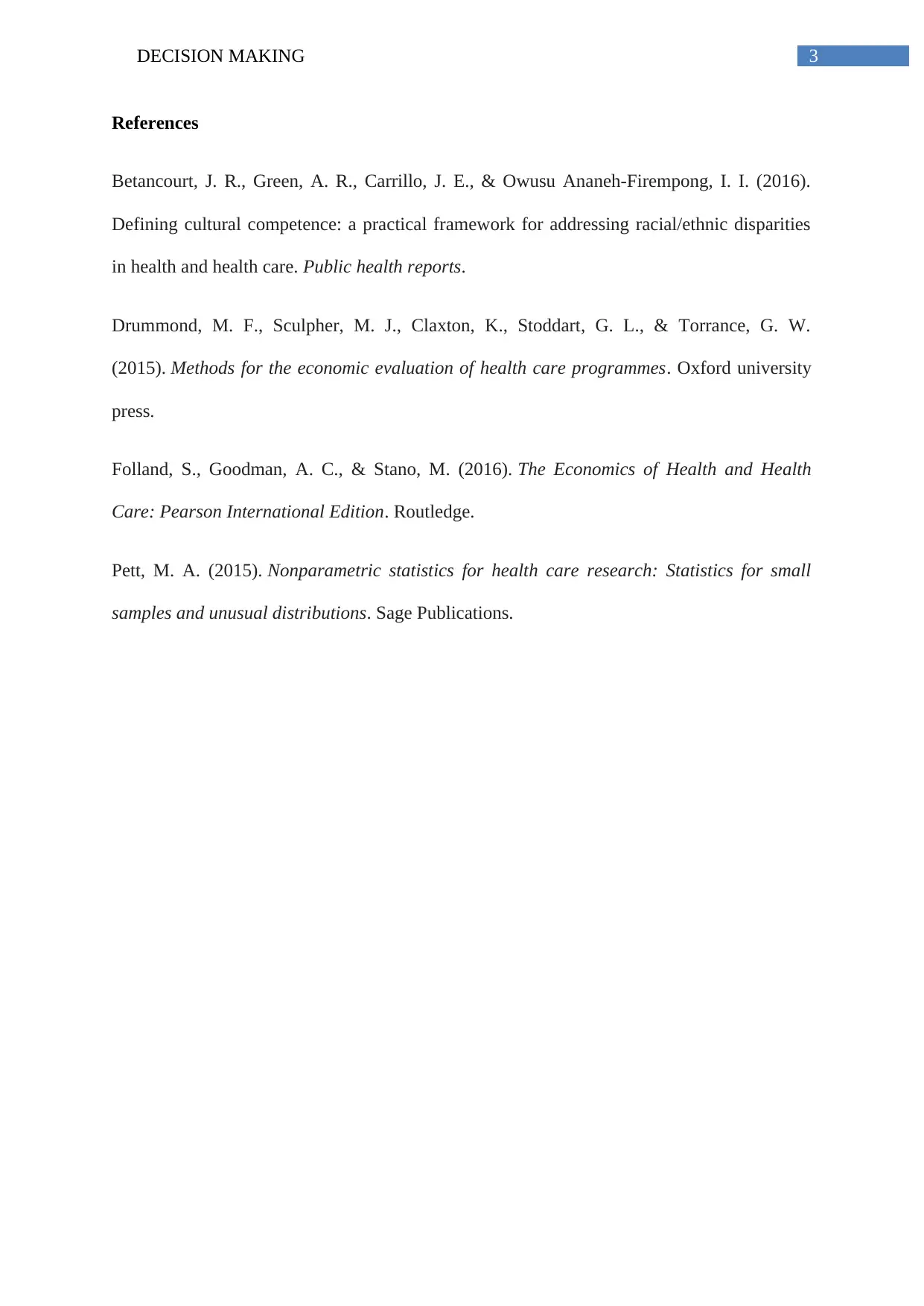Decision Making in Healthcare: Analysis of Protocols
VerifiedAdded on 2020/03/16
|4
|658
|34
Report
AI Summary
This report delves into the complexities of decision-making within the healthcare sector, specifically examining conflicts that arise among physicians regarding cancer treatment protocols. It emphasizes the importance of core competencies, such as patient-centered care, which involves understanding and addressing individual patient needs, and fostering effective communication. The report also highlights the significance of interdisciplinary teams, quality improvement initiatives, and the utilization of informatics to support informed decision-making. Furthermore, it discusses the necessity of employee-based practices and the application of quality improvement to ensure patient safety and improve treatment outcomes. By addressing these key areas, the report aims to provide a comprehensive overview of the strategies and approaches that can be employed to mitigate conflicts and enhance the overall quality of healthcare delivery, particularly in the context of cancer treatment.
1 out of 4











![[object Object]](/_next/static/media/star-bottom.7253800d.svg)